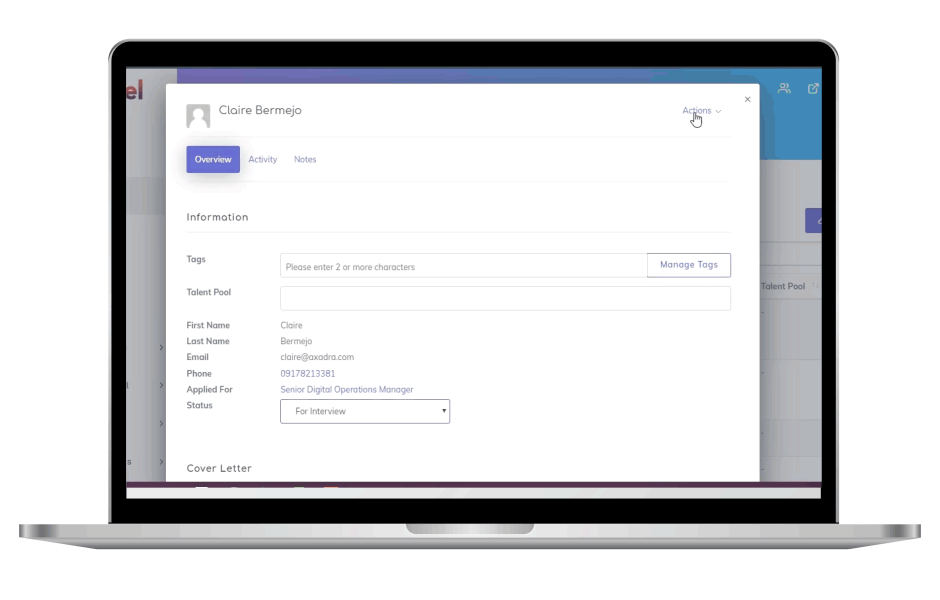In the competitive landscape of hiring, the quest for the ideal candidate often feels like searching for a needle in a haystack. Recruitment professionals grapple with an avalanche of resumes, navigating numerous interviews that consume time and resources and conducting reference checks. The imperative lies in streamlining this process, uncovering top-notch applicants efficiently.
Enter pre-employment testing—a pivotal solution revolutionizing recruitment strategies. This method offers a glimpse beyond resumes and interviews, delving into candidates’ competencies and potential. However, as this tool gains traction, questions surrounding its legality emerge. Exploring the legality of pre-hire testing unveils a complex terrain where efficiency meets legality in the quest for the perfect hire.
What is Pre-Employment Testing?
Pre-employment testing encompasses a spectrum of assessments designed to evaluate a candidate’s skills, cognitive abilities, personality traits, and job-related competencies. Ranging from psychometric tests to situational judgment exercises, these evaluations aim to gauge a candidate’s suitability for a role beyond what resumes and interviews reveal. They offer insights into a candidate’s potential performance, aiding recruiters in making informed hiring decisions.
Types of Pre-Employment Testing
Diving into the spectrum of pre-hire testing reveals an array of distinctive assessments. From assessing cognitive abilities to testing language proficiency, each test category unveils crucial aspects of a candidate’s potential fit.
Work Skills Assessment
This kind of assessment highlights the importance of a candidate’s experience. Work skills assessments delve into a candidate’s proficiency in job-related tasks, ensuring alignment with role requirements. These evaluations scrutinize specific competencies and practical skills necessary for effective job performance.
Cognitive Ability Tests
These assessments gauge problem-solving, critical thinking, and reasoning skills crucial for diverse job roles. They measure a candidate’s capacity to handle complex tasks, adaptability, and learning potential.
Emotional Intelligence Evaluation
Emotional intelligence evaluations explore a candidate’s capacity for empathy, self-awareness, and social skills—vital for effective communication, teamwork, and leadership within an organization.
Language Proficiency Testing
Language proficiency assessments ascertain a candidate’s grasp of the required languages for the job, ensuring effective communication in multicultural or multilingual work environments.
Personality Assessments
Assessing a candidate’s personality means delving into their traits, behavior patterns, and compatibility with organizational culture. These evaluations provide insights into how a candidate may fit within a team and align with company values.
Knowledge Assessments
Knowledge assessments verify a candidate’s understanding of industry-specific concepts or technical know-how, ensuring they possess the required expertise for the role.
Physical Ability Testing
Physical ability tests gauge a candidate’s capacity to perform physical tasks integral to the role, ensuring they meet the necessary physical demands of the job.
Drug Testing
This type of pre-employment test ensures compliance with organizational policies and safety protocols, maintaining a secure and productive work environment.
Are Pre-Employment Assessment Tests Legal?
Absolutely, pre-employment testing is legal within the United States. Federal, state, and local laws do not expressly prohibit the use of these assessments when conducted appropriately. However, the legality hinges on the fair and proper implementation of these tests.
Legal Issues With Pre-Employment Testing
Pre-employment testing treads a fine line between informed assessment and potential illegality under US law. Prohibiting discrimination based on irrelevant personal qualities, the law mandates that a candidate’s failure to meet job-related criteria cannot stem from arbitrary traits. Monitoring pre-employment tests is crucial to detect adverse impacts on the selection process. Evidence of adverse impact arises when certain groups face higher exclusion rates than others.
For instance, physical ability tests might inadvertently discriminate against female candidates, while assessments measuring language skills can disadvantage non-native English speakers. Any test that inadvertently becomes a barrier for qualified candidates due to factors unrelated to the job’s core requirements raises legal red flags. Ensuring fairness in pre-hire testing demands a meticulous balance between evaluating job-specific skills and avoiding discriminatory practices that can unlawfully hinder qualified individuals from securing employment opportunities.
Choosing the Right Pre-Employment Test
Integrating pre-employment tests into your hiring process can significantly streamline recruitment procedures, just like an HR applicant tracking system does. However, the key lies not only in incorporating these assessments but also in understanding the legal issues that may arise with pre-employment testing.
Two pivotal factors to consider when choosing pre-employment tests are validity and reliability. Validity signifies the test’s confirmation, backed by research, that its results directly correlate with on-the-job performance. This crucial aspect ensures that the assessment measures relevant skills and attributes required for the specific role, fortifying the connection between test results and future job success.
Reliability, on the other hand, emphasizes the test’s consistency in measuring targeted traits or competencies. A reliable test consistently produces similar outcomes when administered repeatedly, offering dependable and consistent insights into candidates’ capabilities.
Selecting pre-employment tests with high validity and reliability not only bolsters your hiring decisions but also safeguards against potential legal issues. These tests become powerful tools in assessing candidates objectively, contributing to more informed and equitable recruitment choices while upholding the legality and fairness of the hiring process.
Be Confident With Pre-Employment Testing
Embracing pre-employment testing as a valuable tool in your hiring arsenal warrants confidence, considering its general legality. Nonetheless, exercising caution and due diligence in test selection remains paramount. Striking a balance between effective assessment tools and legal compliance empowers your organization to make informed hiring decisions, fostering a robust, inclusive, and legally sound recruitment process.















